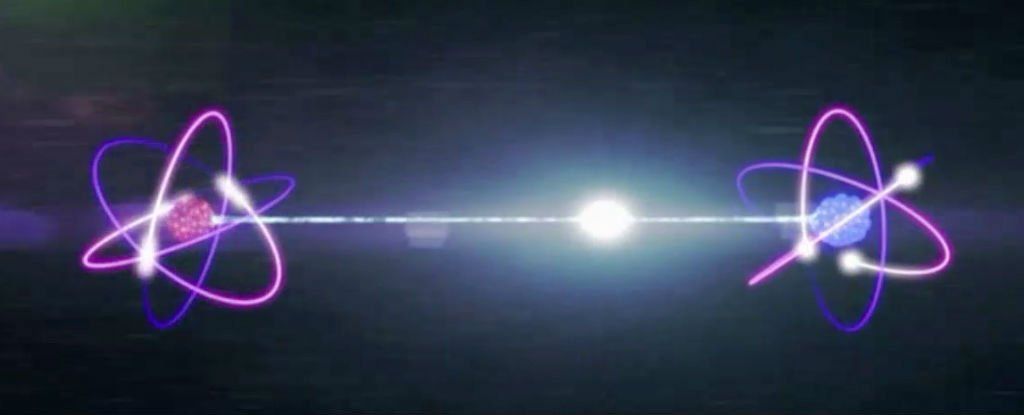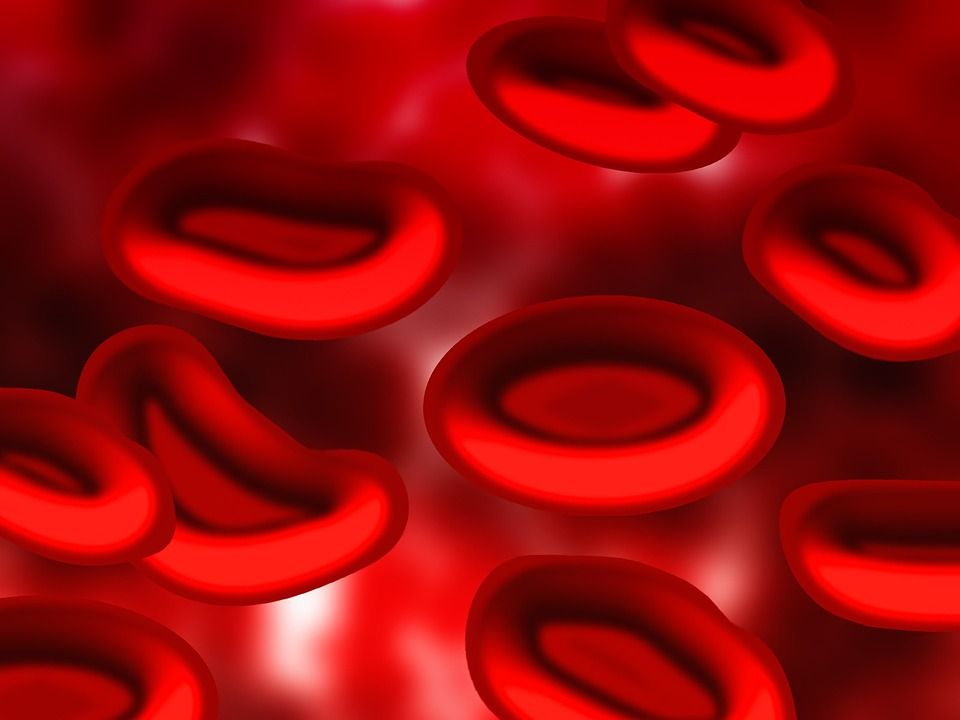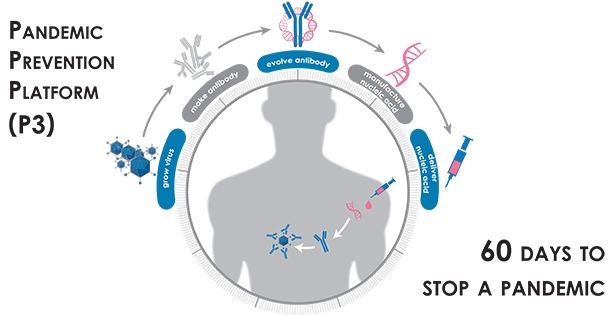Page 10245
Feb 7, 2017
For the First Time Scientists Have Observed a Quantum Phase Transition
Posted by Shane Hinshaw in categories: computing, quantum physics
In Brief
- Scientists were able to rig up a system in which they could view a “photon-blockade breakdown” where the system switched from opaque to transparent.
- This discovery has implications in both the development of advanced computer memory systems and better quantum simulations in the future.
For the first time, physicists have experimentally observed a first-order phase transition occur in a quantum system – verifying years of theoretical predictions.
Phase transitions are something that we see on a daily basis when our ice melts into water, or steam evaporates from a boiling kettle. While these transitions are easy for us to observe, phase transitions also happen on the very tiny, quantum-scale, where they play an important role in physics. But, up until now, no one had ever witnessed one experimentally.
Continue reading “For the First Time Scientists Have Observed a Quantum Phase Transition” »
Feb 7, 2017
Injection could permanently lower cholesterol
Posted by Shane Hinshaw in categories: bioengineering, biotech/medical, genetics

Some people have mutations that greatly lower their cholesterol. Tests in mice suggest gene editing could give the rest of us the same protection.
Feb 7, 2017
Scientists Are Developing Flu Shots for Dogs, Which Will Help Protect Us Too
Posted by Shane Hinshaw in category: biotech/medical
Feb 7, 2017
Sorry, Einstein — physicists just reinforced the reality of quantum weirdness in the Universe
Posted by Shane Hinshaw in categories: particle physics, quantum physics
One of the strangest phenomena you’re likely to come across in all of science is quantum entanglement — where two particles interact in such a way that they become deeply linked, and essentially ‘share’ an existence, even if they’re light-years apart.
Einstein famously couldn’t get on board with this idea, and ultimately decided that it was just too weird to be true. But a new experiment has just made the strongest case yet for the reality of quantum entanglement, so it looks like our Universe is just as bizarre as we suspected.
“The real estate left over for the skeptics of quantum mechanics has shrunk considerably,” one of the team, David Kaiser from MIT, told Jennifer Chu at Phys.org.
Feb 7, 2017
New Study Raises Questions About The Anti-Aging Benefits Of Blood Transfusions
Posted by Steve Hill in categories: biotech/medical, life extension
New study raises questions over using young blood transfusions as a therapy for aging.
There has been a lot of interest in the potential for transfusions of young blood to rejuvenate the old. However a recent study raises some intriguing questions.
Feb 7, 2017
Japanese AI Writes a Novel, Nearly Wins Literary Award
Posted by Bryan Gatton in category: robotics/AI
I had thought my job was safe from automation—a computer couldn’t possibly replicate the complex creativity of human language in writing or piece together a coherent story. I may have been wrong. Authors beware, because an AI-written novel just made it past the first round of screening for a national literary prize in Japan.
The novel this program co-authored is titled, The Day A Computer Writes A Novel. It was entered into a writing contest for the Hoshi Shinichi Literary Award. The contest has been open to non-human applicants in years prior, however, this was the first year the award committee received submissions from an AI. Out of the 1,450 submissions, 11 were at least partially written by a program.
Here’s an excerpt from the novel to give you an idea as to what human contestants were up against:
Continue reading “Japanese AI Writes a Novel, Nearly Wins Literary Award” »
Feb 7, 2017
The Real Threat Is Machine Incompetence, Not Intelligence
Posted by Sean Cusack in categories: Elon Musk, robotics/AI

Forget super-AI. Crappy AI is more likely to be our downfall, argues researcher.
The past couple of years have been a real cringe-y time to be an AI researcher. Just imagine a whole bunch of famous technologists and top-serious science authorities all suddenly taking aim at your field of research as a clear and present threat to the very survival of the species. All you want to do is predict appropriate emoji use based on textual analyses and here’s Elon Musk saying this thing he doesn’t really seem to know much about is the actual apocalypse.
It’s not that computer scientists haven’t argued against AI hype, but an academic you’ve never heard of (all of them?) pitching the headline “AI is hard” is at a disadvantage to the famous person whose job description largely centers around making big public pronouncements. This month that academic is Alan Bundy, a professor of automated reasoning at the University of Edinburgh in Scotland, who argues in the Communications of the ACM that there is a real AI threat, but it’s not human-like machine intelligence gone amok. Quite the opposite: the danger is instead shitty AI. Incompetent, bumbling machines.
Feb 7, 2017
New Laser Based on Unusual Physics Phenomenon Could Improve Telecommunications, Computing and More
Posted by Klaus Baldauf in categories: computing, physics
Researchers at UC San Diego demonstrate the first laser using bound states in the continuum (BICs). Left to right: Yeshaiahu Fainman, Boubacar Kanté, Ashok Kodigala and Babak Bahari.
Feb 7, 2017
Removing the Viral Threat: Two Months to Stop Pandemic X from Taking Hold
Posted by Klaus Baldauf in categories: biotech/medical, genetics, health
Over the past several years, DARPA-funded researchers have pioneered RNA vaccine technology, a medical countermeasure against infectious diseases that uses coded genetic constructs to stimulate production of viral proteins in the body, which in turn can trigger a protective antibody response. As a follow-on effort, DARPA funded research into genetic constructs that can directly stimulate production of antibodies in the body., DARPA is now launching the Pandemic Prevention Platform (P3) program, aimed at developing that foundational work into an entire system capable of halting the spread of any viral disease outbreak before it can escalate to pandemic status. Such a capability would offer a stark contrast to the state of the art for developing and deploying traditional vaccines—a process that does not deliver treatments to patients until months, years, or even decades after a viral threat emerges.
“DARPA’s goal is to create a technology platform that can place a protective treatment into health providers’ hands within 60 days of a pathogen being identified, and have that treatment induce protection in patients within three days of administration. We need to be able to move at this speed considering how quickly outbreaks can get out of control,” said Matt Hepburn, the P3 Program Manager. “The technology needs to work on any viral disease, whether it’s one humans have faced before or not.”
Recent outbreaks of viral infectious diseases such as Zika, H1N1 influenza, and Ebola have cast into sharp relief the inability of the global health system to rapidly contain the spread of a disease using existing tools and procedures. State-of-the-art medical countermeasures typically take many months or even years to develop, produce, distribute, and administer. These solutions often arrive too late—if at all—and in quantities too small to respond to emerging threats. In contrast, the envisioned P3 platform would cut response time to weeks and stay within the window of relevance for containing an outbreak.
















